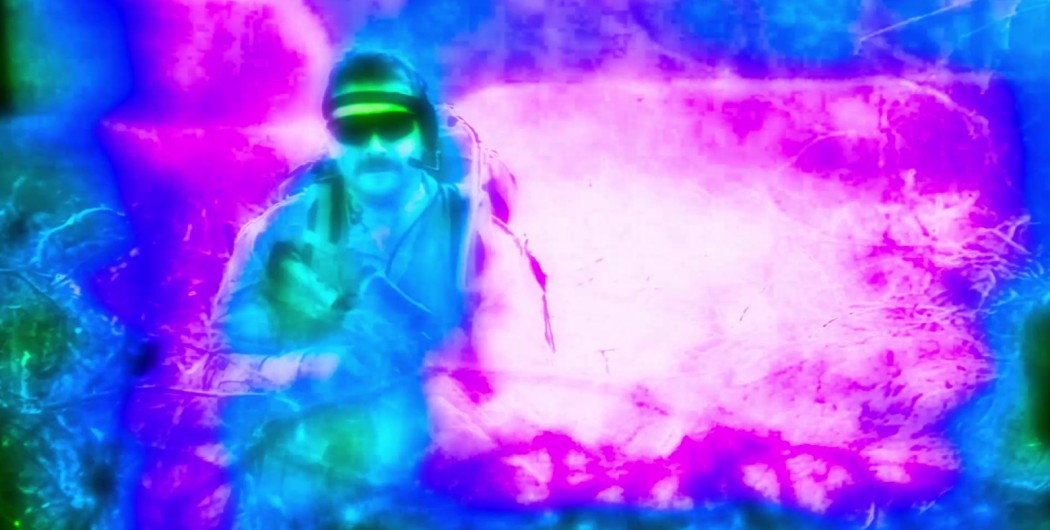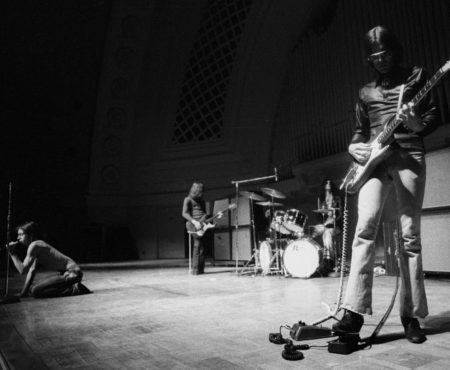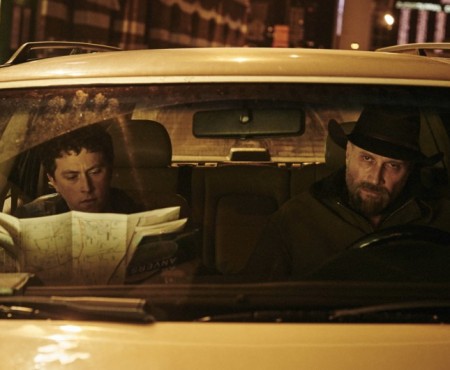The most succinct summary of Guy Maddin’s latest short film, made in collaboration with Evan and Galen Johnson, comes from Toronto critic Adam Nayman, who declared, “there’s never been shade-throwing of this magnitude in the history of Canadian cinema.” The film has so much back-story that running through it can feel as long as the 30-minute short itself. In essence, Maddin, telling the viewer he needed cash for his own feature, pitches fellow director Paul Gross on shooting a making-of documentary of his war film Hyena Road. For reasons unknown, Gross agrees.
At what point Gross realized his mistake is unclear, but from the outset of Bring Me the Head of Tim Horton, its excoriating intent is obvious. Even in his mildest, most plain-spoken teases, Maddin contrasts his own shoestring shoots, in which catering consists of Lobster Garden coupons, to Gross’s, where “Nova Scotia oysters” are flown in to Jordan. Dubbing Gross “The Great Canadian Populist,” Maddin could have filled the half-hour with nothing more than swipes at the star’s hubris and the coddled production behind this supposedly harrowing document of bravery and resilience. Sometimes, Maddin delivers his most devastating broadsides without saying anything at all – a shot of Gross posing for the camera in military fatigues, as a pop-up identifies him as director, writer, producer and star, says everything about who is truly being honored by this project.
But Maddin, being Maddin, soon leaps far beyond mere parody, producing, in his own words, a “formally radical, ill-tempered retort to Paul’s digestible adventurism.” Taking behind-the-scenes footage of actors dressed as soldiers (or, worse, Taliban insurgents) as they both perform their scenes and stand around idly between takes, Maddin and the Johnsons begin to warp the images with everything from color fluctuations to digital and chemical tweaks. Thus shots of the actors engaging in mock firefights become a fauvist sci-fi adventure – with chintzy laser sound effects in place of gunfire to underscore that the only reality in this war film (or any other) is what the filmmakers choose to fake. Foley effects get foregrounded, ramping up the depictions of the genre’s tough guy clichés with the echoing crunch of boots on pebbles, the incoherent radio babble of superior officers chirping to their soldiers, and the reductive cries of “Allahu Akbar” that comprise 100 percent of the “Taliban’s” dialogue. Soon, however, the filmmakers hone in on goofy noises, like the exaggerated pop of a lip balm cap, to undercut the macho cool.
Not only does the film thoroughly mock the way that war pictures appropriate bravery in a safe environment; it also calls into question the mire of racial politics that relate to any film about a conflict between well-armed Western powers and less-organized resistance in developing nations. That Maddin himself is relegated to a background extra as a Taliban corpse by Gross’s (justifiably) suspicious crew only highlights how thoroughly the white filmmakers get to shape the enemy while maintaining a façade of truth. Packed with extended quotations of ruminative, obtuse pop-philosophy, green-screen trickery and manipulated clips of promotional material recorded by Canadian’s monolithic entertainment company Cineplex, Bring Me the Head of Tim Horton hits numerous targets. It critiques celebrity vanity, cinematic violence, jingoism and, in the invocation of sanctified hockey stars (both in the title and the closing disco number built around Guy Lafleur’s coaching instruction), some kind of Canadian identity crisis. Few films of any length this year are so stuffed with ideas, or half as funny.




















